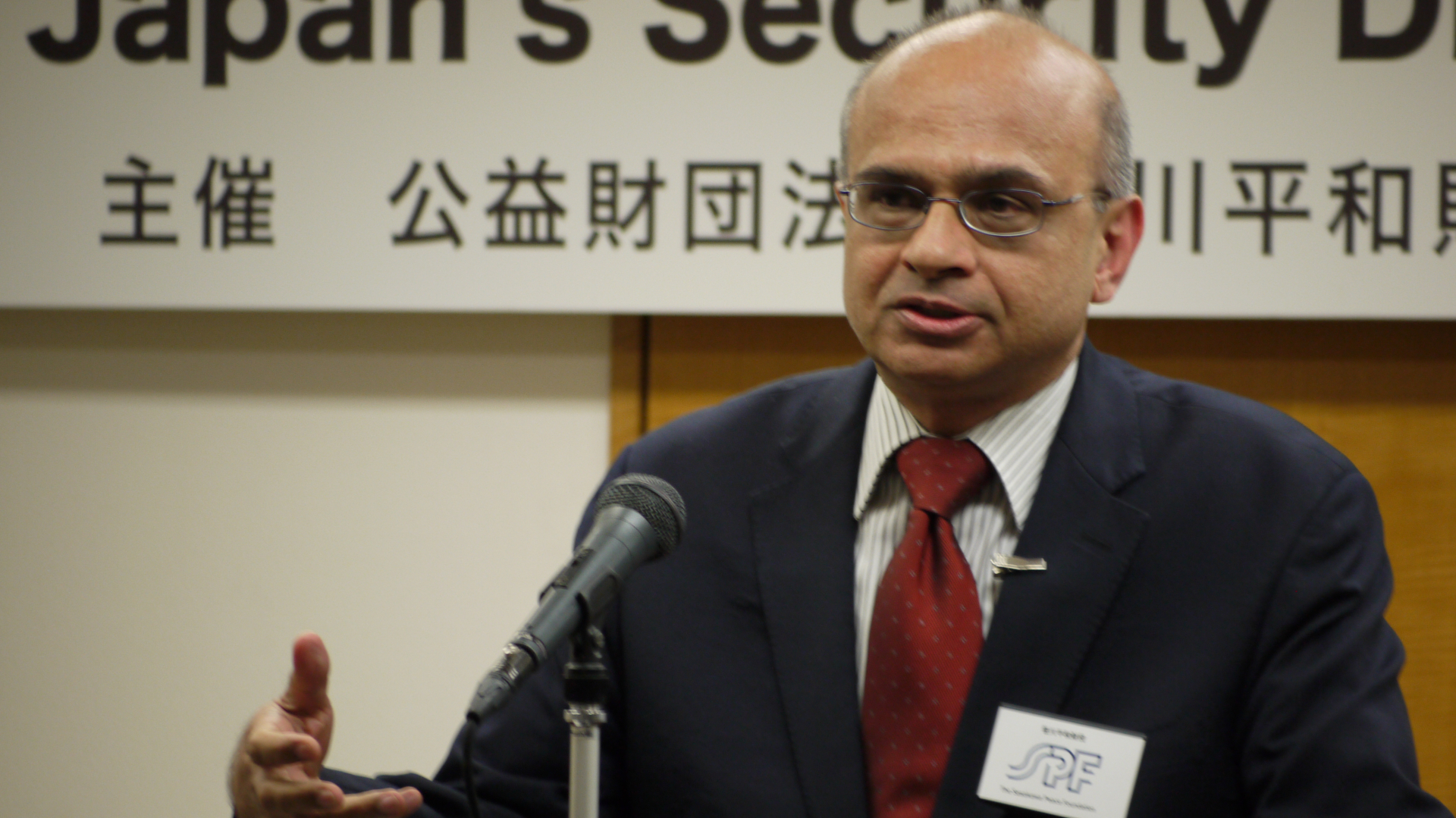Interview summary:
Q: How do you view the criticism from Asian countries on Japan's history?
A: The history problem is at the root of many of Asia's political problems. The history baggage weighs down all the major interstate relationships in Asia. It's not just Japan's relationship with China or with South Korea, but also relationships between India and China, and those relationships are also weighed down by history. But, it's time for all to move on and to look ahead. I think that it is important for the whole of Asia to commit to ensure that history is not a barrier to shaping a better and more prosperous future.
Q: The Japan-India relationship is viewed as the fastest-growing bilateral relationship in the world, isn't it?
A: The partnership between Japan and India is Asia's transformative entente. It's a relationship that can transform Asia geopolitically because there are three important powers in Asia: Japan, China and India. If two of these powers come together like Japan and India, they can make quite a bit of difference in the overall situation and ensure peace and stability. So, the Japan-India partnership can likely be a contributor to Asian peace and security. In the coming years, we will likely see a lot more cooperation happening between Japan and India in the strategic realm. Both countries already hold an annual summit meeting between their prime ministers.
Q: Do you think that the Japan-US alliance is also important for India and other Asian nations?
A: The US-Japan alliance is the linchpin of Asian peace and security. For the United States, Japan is central to American strategy in Asia. This relationship is becoming increasingly important because of Chinese revisionism. This partnership between Japan and the United States is also important for larger Asian peace and stability. So, what we are seeing in Asia is a consolation of partnerships between like-minded countries and this web of partnerships between friendly countries creates a web of interlocking partnerships that contribute to each other. Friendly countries of the Indo-Pacific region can help create equilibrium and stability in the larger Asia-Pacific region.
Q: You are expecting that Japan will play an active role in the international community.
A: Japan has an impressive record in that it has not fired a single shot against an outside party since World War II. How many countries in the world have such a record? For many decades, Japan has pursued a passive diplomacy. But, there is increasing indication that Japan now wants to be a proactive player. A proactive Japan is essential for Asian peace and stability. It's very important for Japan, while remaining a pacifist power, to become a proactive player in the Asian theater.
